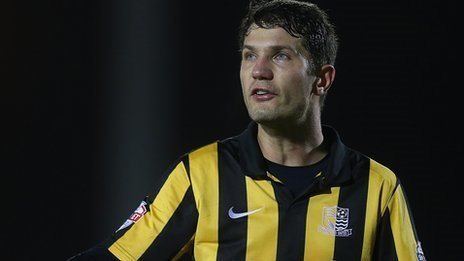For nearly two decades, Mark Phillips lived the dream so many young football fans share. He played almost 400 professional games, represented clubs like Millwall, Brentford, and Southend, lifted a League Two trophy, and walked out at Wembley. From the outside, his career looked like a story of grit, talent, and resilience. But behind the scenes, something bigger was happening — something he wouldn’t fully understand until long after he retired from the pitch. At 43 years old, Phillips received a diagnosis that reframed his entire life: ADHD, combined type. And according to him, it changed everything.
A Diagnosis He Never Saw Coming
Phillips admits that ADHD wasn’t even on his radar.
“Before my diagnosis, ADHD never crossed my mind. I had a stereotypical view of it as hyperactivity in young boys — nothing like what I experienced.”
Like many players, he expected a difficult adjustment period after retirement. The structure, routine, and adrenaline of professional football disappear overnight — something known to affect many former athletes. So when he began struggling, he chalked it up to that void. But things didn’t add up. Personal challenges — including the sudden loss of his father — added layers of emotional weight, and although counselling helped in the short term, he sensed he still wasn’t getting to the root of the problem. The turning point came through his son. As his child was being assessed for ADHD, Phillips began recognising the patterns at home. Then social media videos about adult ADHD started resonating in a way nothing else had. “The things I was seeing made complete sense.” This sparked the journey to a private assessment — a process he now describes as eye-opening, emotional, and transformative.
The Assessment That Brought Everything Into Focus
His formal assessment included questionnaires, interviews, and, most surprisingly, old school reports. They didn’t match the upbeat memories he had of secondary school. Teachers described unmet potential, inattention, and disruptive behaviour — traits Phillips now recognises as classic ADHD symptoms. But it wasn’t until the final three-hour clinical session that everything clicked. “I still feel emotional talking about it. When the doctor said, ‘You’ve definitely got ADHD,’ I broke down. It was life-changing. It finally explained why I struggled the way I did — and that it wasn’t my fault.” For Phillips, the diagnosis wasn’t a label. It was validation.
How ADHD Shaped His Football Career Without Him Knowing

Looking back, Phillips can now clearly see how ADHD showed up in his playing days. He describes becoming intensely locked into preparation, rituals, and performance details. “I’d hyperfocus on perfecting every little thing.” This level of concentration helped him succeed — but it also came with a harsh inner critic. Even after standout performances, one small mistake could unravel his entire evaluation of a match.
“I’d beat myself up over tiny things. I never allowed myself to recognise my success.”
He also struggled with change. Transfers — a normal part of the football world — felt overwhelming. Opportunities in Scotland and Belgium slipped away because the uncertainty triggered deep discomfort. “I didn’t like change. Looking back, I’d have loved those experiences, but I just couldn’t push myself forward at the time.” These insights aren’t excuses. They’re reflections he wishes he had years earlier, both for himself and for players coming through the system today.
Finding Balance Through Medication and Understanding
After being diagnosed, Phillips began taking ADHD medication — something he says transformed how he experienced the world. It helped him feel emotions he previously struggled to access, manage overwhelm, and reduce the daily burnout he didn’t even realise he was living with. He also became better at communicating, setting boundaries, and understanding his own cognitive and emotional limits. “I know I can’t do everything. I’m learning to build teams around me instead of juggling everything myself.”
Why He Believes ADHD Is More Common in Football Than We Realise
Phillips now sees signs of undiagnosed neurodivergence throughout the football world — from impulsive reactions to emotional outbursts, to the guilt and regret that often follow. He’s quick to clarify that he isn’t diagnosing anyone. Instead, he wants clubs to encourage players to seek assessments without stigma attached. “Imagine if players understood their brains earlier — how much it could help their careers and their wellbeing.” He’s now working with player associations and hopes to help clubs build more awareness and support.
Using His Journey to Help the Next Generation
Perhaps the most inspiring part of Phillips’ story is what came next. Driven by his own experiences, he created The ND Footballer, a platform dedicated to ADHD and neurodiversity in sport. Through videos, resources, workshops, and outreach, he wants to educate young athletes and their families. His mission is simple: help people understand their brains sooner than he did. “Our differences need to be celebrated. ADHD can be tough — really tough — but it can also be a strength when you finally understand it.” Phillips now speaks to schools, organisations, businesses, and hopes to expand into football academies and clubs nationwide.
A Diagnosis That Became a Turning Point
Mark Phillips’ story is more than a revelation — it’s a reminder of how deeply neurodivergence can shape someone’s life, especially when left unrecognised. From misinterpreted behaviour in school to overwhelming moments in adulthood, to the hyperfocus and perfectionism that coloured his football career, ADHD was always there. He just didn’t have the language for it. Now he does — and he’s using it to shine a light for others.




.png)
.svg)

.svg)


